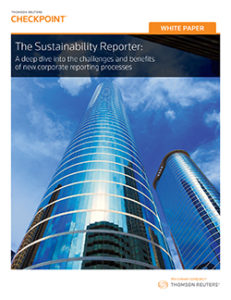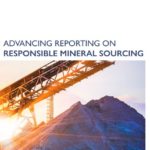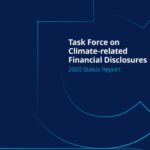
Thomson Reuters has released a Checkpoint special report, The Sustainability Reporter: A deep-dive into the challenges and benefits of new corporate reporting processes, which examines the practicalities of sustainability reporting and how, in the view of sustainability reporting professionals (SRPs), the process can improve so that organizations can realize the value of these new information flows.
Corporate reporting is modernizing globally. Investors and other stakeholders are demanding new categories of information that address how a company operates in a resource–constrained world. This “sustainability reporting” typically includes qualitative information and metrics on items such as water and energy use, carbon emissions, talent and diversity, supply chain performance and more.
The burden of producing this disclosure is falling outside of the traditional CFO unit to a new role of sustainability reporting professionals (SRPs) — and their responsibilities are growing.
For this white paper, Thomson Reuters and BSD Consulting reached out to a select group of SRPs from leading companies worldwide in an attempt to shed light on the practicalities of sustainability reporting and how the process can improve so that organizations can realize the value of these new information flows.



